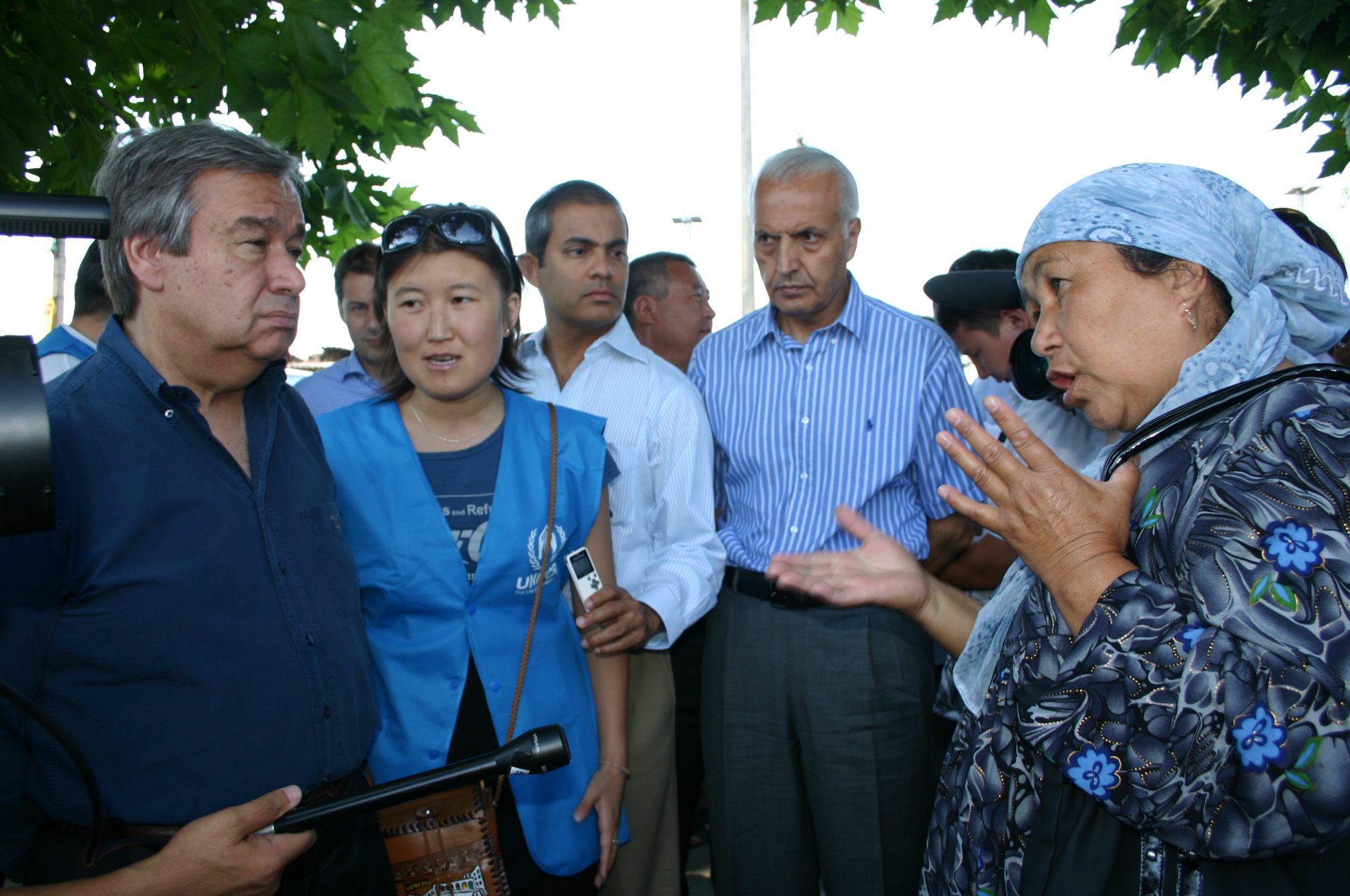75,000 people still displaced in Kyrgyzstan one month on from violence
75,000 people still displaced in Kyrgyzstan one month on from violence

BISHKEK, Kyrgyzstan, July 16 (UNHCR) - A month after violence forced tens of thousands of people to flee their homes in southern Kyrgyzstan, UNHCR estimates that some 75,000 people there are still displaced. Thousands continue to be affected by uncertain security, problems arising from the wide loss of personal documents, and a shortage of shelter.
The situation is calm in Osh and Jalalabad, but there are scores of police checkpoints and the two cities remain under night-time curfew. This, in turn, is presenting difficulties for people without personal papers and there are frequent allegations of police harassment.
Over the past weeks, UNHCR and its partners have been carrying out monitoring and shelter surveys, interviewing thousands of people. At the peak of this crisis, UNHCR estimated that 400,000 people were affected. Today, the number of displaced people still requiring help with shelter is 75,000, including people either afraid to return or unable to do so because their homes have been destroyed.
The loss of personal papers, such as birth certificates, passports, ID cards and documents showing legal ownership of land or houses, is proving to be debilitating. In Furkat district of Osh, UNHCR staff saw a family of 12 who had lost their paperwork while fleeing their home on June 11. With nothing to confirm their identities, they face problems even in applying for new papers. Such problems are widespread.
UNHCR and its NGO partners are visiting communities to counsel people on their rights and on procedures for restoring documentation. The refugee agency is also discussing with the State Registration Service ways to enhance capacity to reissue documents, such as establishing mobile teams to visit affected communities.
With shelter needs, most people are hoping to rehabilitate their homes. Skills exist in the community to do this, but the amount of work is substantial and assistance from the government and the international community is vital.
UNHCR has agreed with the authorities to immediately start rehabilitation and reconstruction of 550 houses - 500 in Jalalabad and 50 in the Madi and Aravan districts of Osh province. UNHCR is supporting construction of two heated rooms of up to 50 square metres for families whose houses were recently damaged or destroyed. The aim is to have this work done before the onset of winter.




